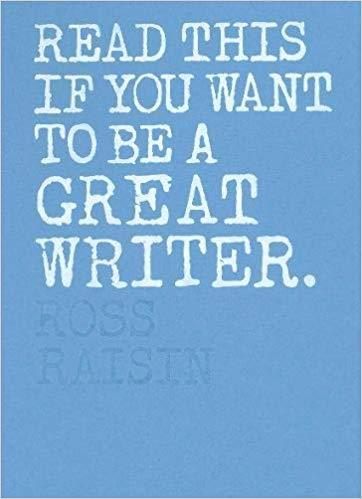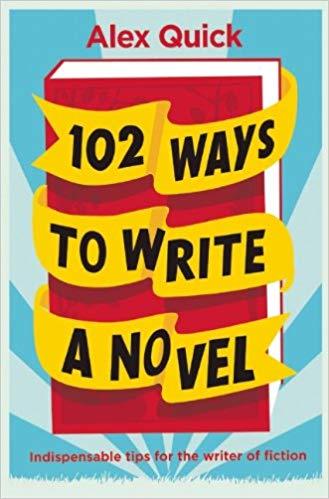See more posts like this on Tumblr
#writing #writeblr #writers #write #writer #writing advice #amwriting #writing tips #writerblr #writing community #YoutubeMore you might like
Books You Should Read to Improve Your Writing - Non-Fiction Edition
I’ve done a few of these posts on books you should read to improve your writing. So, I thought that it was finally time to tackle non-fiction. Which books claiming to give writing advice are actually good to read?
1. Save the Cat by Blake Snyder

- Description: This ultimate insider’s guide reveals the secrets that none dare admit, told by a show biz veteran who’s proven that you can sell your script if you can save the cat! (goodreads)
- So, this is probably one of the most well-known books about writing. And there is a reason for that. This book provides some great, simple advice on how to create a well-structured plot and keep readers hooked throughout your story. It is aimed at screenwriting, but all the principles can be applied to writing a novel as well. Plus, there is a version called Save the Cat Writes a Novel if you want the advice to be more targeted. All in all, this is a great guide if you’re having trouble with structure or creating a main character readers actually care about.
- Get it on amazon
2. Read This If You Want To Be A Great Writer by Ross Raisin

- Description: This book demystifies the writing process, empowering you to write your own novel or short story. The author explains expert technique in a clear and jargon-free way, with examples from the fifty greatest writers of our time. For aspiring writers of all ages and abilities, Read This If You Want to Be a Great Writer will motivate and strengthen your writing talent. (goodreads)
- This book is amazing. It sets out different techniques used for various aspects of novel-writing, explains each clearly and uses examples to illuminate the success of that technique. Rather than focusing on one right way, this book explains all the methods that have been used successfully so that you can understand them and implement the ones that work for you. Reading this one also inspired me so much. I would definitely recommend checking it out.
- Get it on amazon
3. Closing the Deal on Your Terms: Agents, Contracts and Other Considerations by Kristine Kathryn Rusch

- Description: Making the wrong decisions on the business side of publishing can destroy a writer’s career. Longtime writer, editor, and publisher Kristine Kathryn Rusch knows this better than anyone. So she decided to write a book on the dealbreakers in contracts, agency agreements, and other business things that will ruin a writer’s future. Little did she know that it would take her seven months, lots of hand-wringing, and a lot of help from the readers of her blog. The result, Closing the Deal…on Your Terms, shows how the tiniest of decisions—talking to a Hollywood producer on the phone, falling for a typical agent’s ruse of masking a contract for a letter—can have lifelong consequences. Written for every writer, whether self-published, traditionally published, or hybrid, Closing the Deal…on Your Terms takes writers on a journey that will help them understand what they’re selling and what they could accidentally give away. (goodreads)
- This one relates more to the publishing side of writing rather than the craft itself. I’m not going to lie to you: reading this book can be demoralizing. The author is harsh and often patronising. But it’s worth it for the wealth of information you receive. If you plan on publishing your work, this book is a must-read. It could have been laid out better, but it’s the educational value that makes it great. Please, do yourself a favour and study this no-bullshit guide to literary agents and contracts.
- Get it on amazon
4. 102 Ways to Write a Novel by Alex Quick

- Description: This step-by-step guide to the art – and the craft – of writing fiction is a refreshing blend of the practical (how to find an agent), with the more cerebral (how to handle point of view; the importance of rhythm). Throughout, Quick uses the hard-won experiences of his fellow novelists to give color and depth to his own advice. Did you know, for instance, that Road Dahl wrote in a shed? That Nabokov composed his masterpieces on index cards? Or – alas – that most writers get their best work done in the mornings? Full of wit and lightly-worn erudition, 102 Ways to Write a Novel is an elegant, useful and even inspiring vade mecum. It will become a classic of its kind – the book no writer of fiction should be without. (goodreads)
- This was the first writing advice book I ever read and I will never forget how much it taught me. There are literally 102 chapters in this book, each illuminating a different way to approach creative writing. It ranges from writing habits to character creation to the non-novel. If you want to learn more about the writing craft, this is a must-read.
- Get it on amazon
So, there ya go. My recommendations for non-fiction books on writing. I will be doing a video on this topic soon, in which I elaborate more on each title and go through some writing advice books that aren’t worth reading. So, be sure to keep your eyes peeled for that upload.
Reblog if you found this post useful. Comment with your own recommendations. Follow me for similar content.
Today is the big day!!! 🎉 MY YOUTUBE CHANNEL WILL LAUNCH IN A FEW HOURS 🍾 The first video will be up between 16:00 and 18:00 CAT (10:00 and 12:00 EST) - depending on how our Wi-Fi is feeling at the time. So, keep your eyes peeled and go check out the channel 👀
I reached 50 subscribers!!! That may not sound like much, but every milestone deserves to be celebrated. Thanks to everyone who subscribed. If you haven’t yet, please check out my YouTube content and subscribe if you like what you see :)
Writing advice I don’t agree with
DISCLAIMER: This is my opinion
1. Passive voice is always bad
- There are so many tests/checkers for identifying passive voice in your writing and it has become a rule to change every instance of its occurrence.
- Why?
- Yes, I get that it isn’t as exciting and makes your plot/characters seem passive rather than active. Maybe it doesn’t make for great prose.
- But it does have its place.
- I think that one/two/five passive voice sentences in a book are fine. Will you really get burned at the stake if you have the sentence “Her heart had been broken” in your manuscript?
- Maybe I’m just missing something.
- Don’t get me wrong, I’m not saying every second sentence should be passive voice. I’m just saying that you don’t have to change every single passive sentence in your work.
2. Real writers write every day
- Listen, I’ve been writing for thirteen years. I’m always working on a project and I take my writing very seriously. I AM a writer. But I don’t think there’s ever been a period in my life where I wrote every single day.
- Yes, if you schedule time to write every day and you manage to stick to it, you’re amazing. And you’ll probably be published quicker.
- But that doesn’t mean that other writers aren’t serious about their writing or aren’t “real” writers.
- Sometimes, life gets in the way. Sometimes, your creative muscles are really tired and all your words come out crappy. It’s normal.
- It depends on your energy cycle/other responsibilities/goals. If you are working on your WIP and making progress, you’re a writer.
- Don’t be so hard on yourself. Jeez.
3. Only include what is relevant to the plot
- I confess: I am an overwriter. My current WIP is looking to be 150k words, so I’m gonna have to do a LOT of cutting in the editing phase. So yeah, maybe I should take this advice.
- But objectively, I don’t believe in the strict application of this rule.
- If JK Rowling/J.R.R Tolkien only included what would move the plot forward, we wouldn’t have the amazing fleshed-out worlds of HP and LotR. The extra, interesting stuff is what makes those stories so amazing.
- So, I think a much better way to think about this is: Only include what is relevant to your CHARACTERS’ LIVES.
- If there is something awesome that your characters do/see that people don’t get to experience in the real world, tell the reader about it. If there’s some fantastical element about your world that the character would definitely notice, describe how the character experiences it. Live through your characters in the world you’ve created.
4. Every chapter should end on a cliffhanger
- There’s this idea that each chapter should follow a formula: End with a tense reveal/cliffhanger > the next chapter opens with the character’s reaction to said reveal > the middle of the chapter is the mini resolution > the chapter ends with another tense reveal.
- This is a great way to structure a chapter. But it gets tedious and overdone if every single chapter follows the same basic steps.
- Ending EVERY chapter on a tense cliffhanger will drain your readers emotionally and numb them to the tense points in the rest of the novel. So, give your readers time to breathe and enjoy the less intense parts of your story too.
- Have a few chapters that don’t end in absolute suspense.
5. Real writers don’t see writing as a business
- “Real” writers are in it for the art. They live apart from the world of mortals and only care about fairy tales and castles in the sky. They are too pure and dainty and creative to concern themselves with something as mundane as money.
- You are going to die of hunger.
If you agree with these pieces of advice, good for you. I just don’t.
